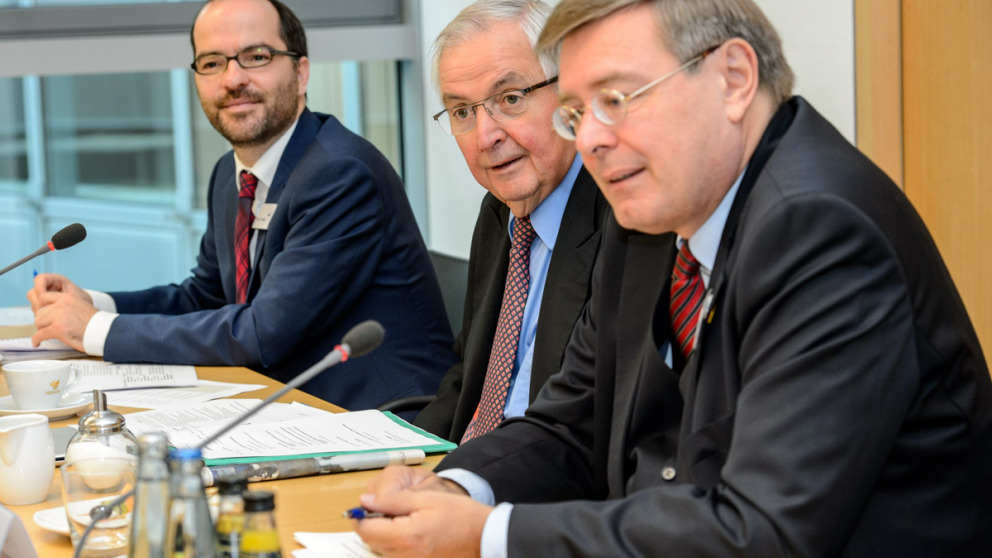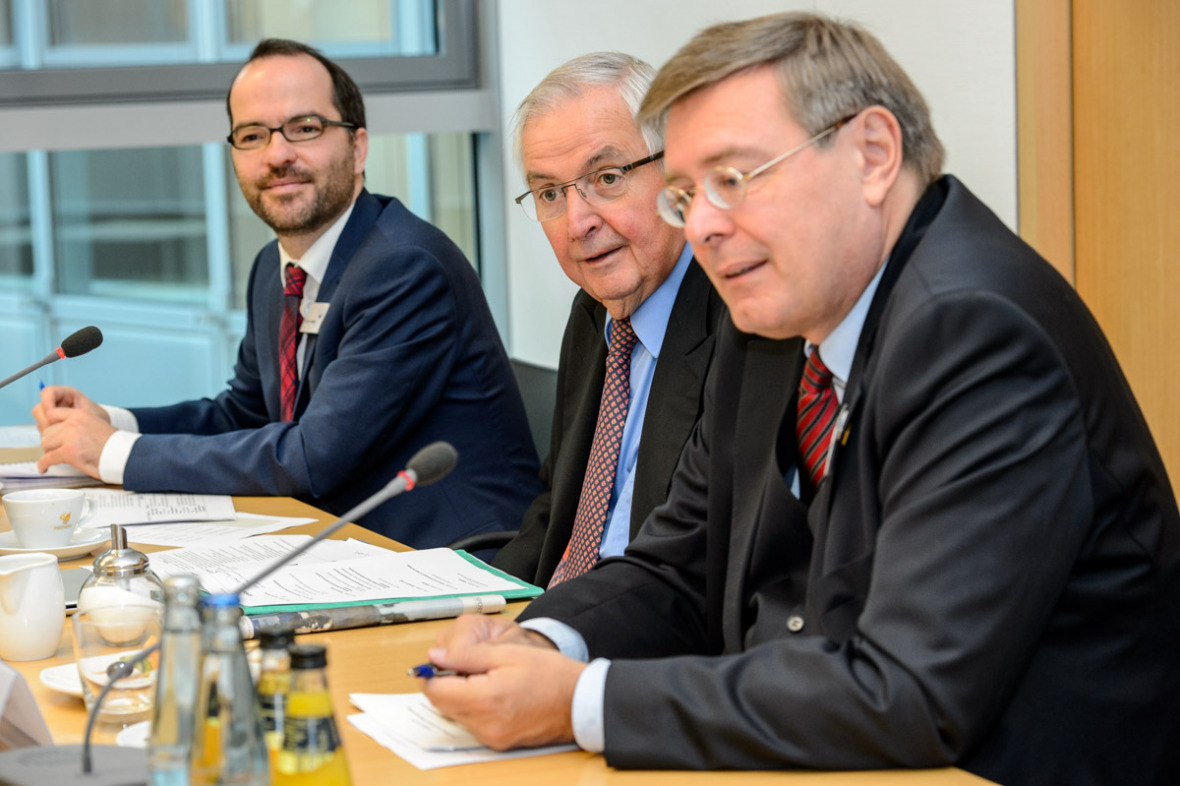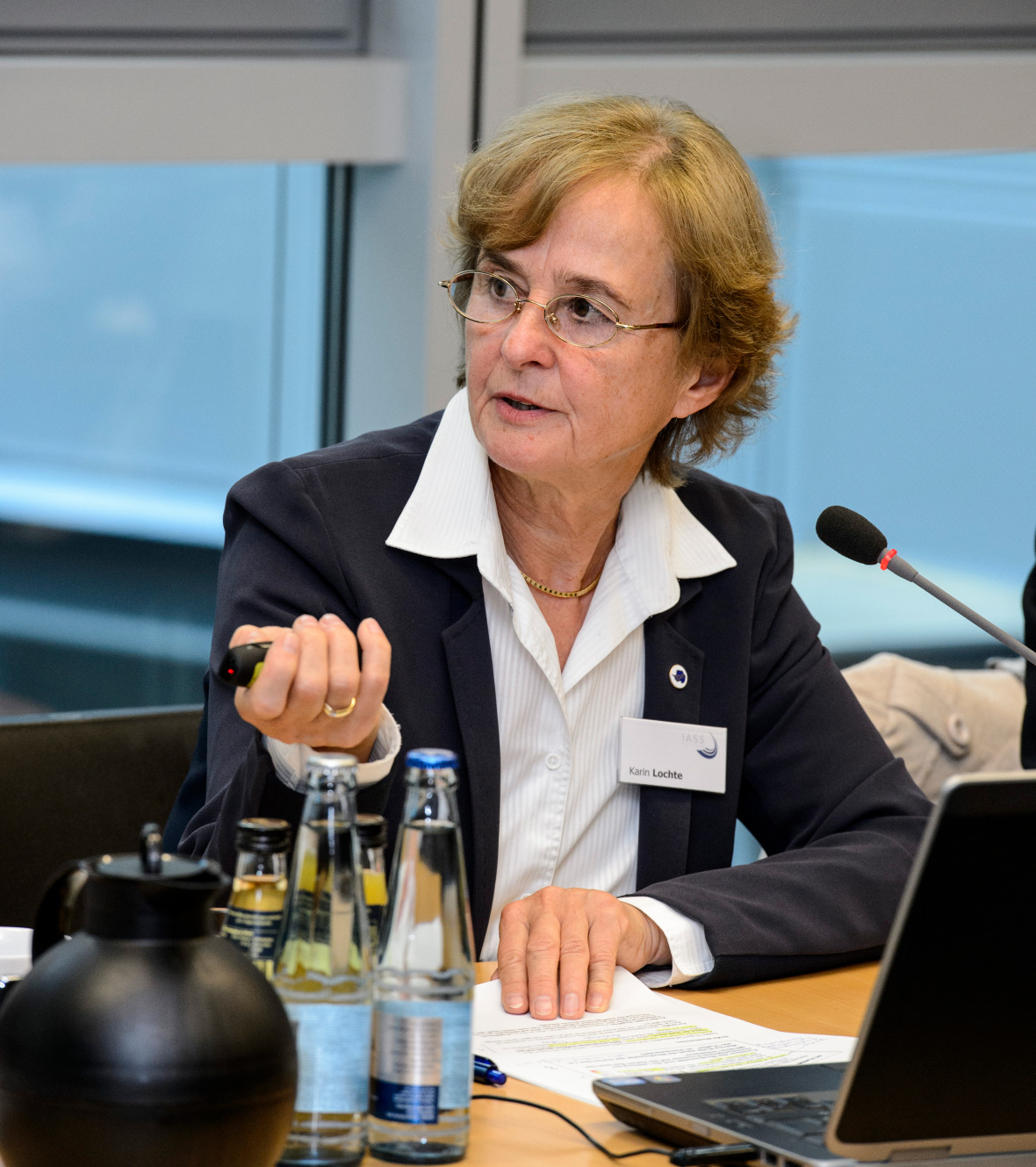Headline:
“Humanity’s Last Commons”: On Course for an Agreement on the High Seas

Event organised jointly by the German Foreign Office, the IASS and the cluster of excellence “The Future Ocean” launches dialogue among representatives of science, politics, industry and NGOs in support of the UN negotiation process on the protection of the high seas.
Almost half of the oxygen we breathe comes from the sea. The oceans absorb more than a quarter of the carbon dioxide in the atmosphere and store more than 90 percent of the warmth. Through their regulation of the climate and the hydrologic and nutrient cycles, they play an important role in life on Earth. But marine biodiversity is threatened by expanding economic activities. In particular in areas beyond national jurisdiction (ABNJ), species and habitats are barely protected. That’s why at the beginning of the year UN member states agreed to begin negotiations on a legally binding agreement to protect the high seas - those parts of the ocean that lie outside national territorial waters. These areas account for almost half of the Earth’s surface.

The Protection of the High Seas: What can Germany do?
Germany’s contribution to protecting and sustainably using the biodiversity of the high seas was the theme of a National Dialogue on the High Seas organised by the German Foreign Office and the IASS in cooperation with the cluster of excellence “The Future Ocean” on 28 September in Berlin. It was the second dialogue in a series that seeks to further an exchange of ideas among representatives of ministries, science, industry and civil society. With a view to the start of the UN negotiation process in 2016, the focus of this Dialogue lay on open questions concerning the establishment of marine protected areas, carrying out environmental impact assessments, access to marine genetic resources, and equitable benefit-sharing between highly developed and less developed countries when it comes to using such resources, capacity building and technology transfer.
The IASS has been investigating possible options for improving the protection of marine areas beyond national jurisdiction since 2013. In addition to supporting the development of a new agreement under the UN Law of the Sea, the oceans team is also analysing strategies for the sustainable use of the oceans in the context of existing regional organisations as well as sectoral regulations, for example for fisheries or shipping, and ensuring that its findings feed into the international negotiation process.
Germany’s contribution: listening carefully and developing creative compromises
“The fact that UN member states are following through on the promise they made to protect the oceans at the Rio+20 Summit just three years ago and have now embarked on a process towards an implementing agreement testifies to the huge importance of the high seas,” remarked IASS Executive Director Klaus Töpfer at the opening of the workshop. For Töpfer, the dialogue series with representatives of science, industry, politics and civil society contributes to achieving clarity on what capacities and concrete proposals Germany can bring to the international discussion in advance of meetings at European and international level.
Pascal Hector, Director International Law at the German Foreign Office, said it was “an important and historical breakthrough that the United Nations will next year begin negotiations within the framework of a Preparatory Committee on a new implementing agreement to supplement the Law of the Sea.” However, he did note that the lack of “coherent coordination” of the various institutions and measures presented UN member states with major challenges. For Hector, Germany’s contribution lies in listening carefully to all sides and developing creative proposals for compromises.
High time to take action despite research gaps

Nele Matz-Lück, Professor of Maritime Law at the University of Kiel, was positive in her assessment of the process towards an agreement on the high seas to date. She is optimistic that the UN Law of the Sea will be supplemented by an effective international instrument to protect marine biodiversity. But only if the cooperation among various stakeholders is strengthened. She suggested that the path taken by the IASS and the Foreign Office in its dialogue series, where representatives of politics, science, industry and civil society engage with each other on an agreement for the high seas, should be institutionalised.
Karin Lochte, Director of the Alfred Wegener Institute – Helmholtz Centre for Polar and Marine Research and Chair of the IASS General Assembly, pointed out that there are still knowledge gaps in oceanography. While the coastal regions have been thoroughly researched, our knowledge regarding some aspects of the deep sea – e.g. its biodiversity – is only “rudimentary”: just 0.0001 per cent of the deep-sea floor has been explored, an area equivalent to the city of Bonn. Now is nevertheless the time to take action: “The oceans are humanity’s last commons. It’s important that we treat them well and ensure that our interventions in the oceans do not undermine the many different ecological functions they fulfil,” stressed Lochte. Marine research in Germany is well equipped to play an international role in the protection of the high seas.
Dialogue to be continued
Workshop participants identified the following questions as central to the negotiation of an agreement:
- By what means (e.g. the establishment of marine protected areas) can the goals to protect biodiversity on the high seas be achieved?
- How can the benefits deriving from the use of marine genetic resources be distributed fairly among less developed and highly developed countries?
- How can the implementation of future regulations on the high seas be monitored and who is responsible for this?
- How should the future framework for international cooperation on protecting the high seas look and how can existing regional and sectoral instruments be combined with any new legal instruments?
- What role can science play here and should a kind of scientific advisory body be established that has a say on the use of the high seas?
One important outcome of the event was that the dialogue initiated by the IASS and the German Foreign Office to support the UN negotiation process will be continued in order to integrate the perspectives of science, NGOs and industry into the German position.
30.09.2015
